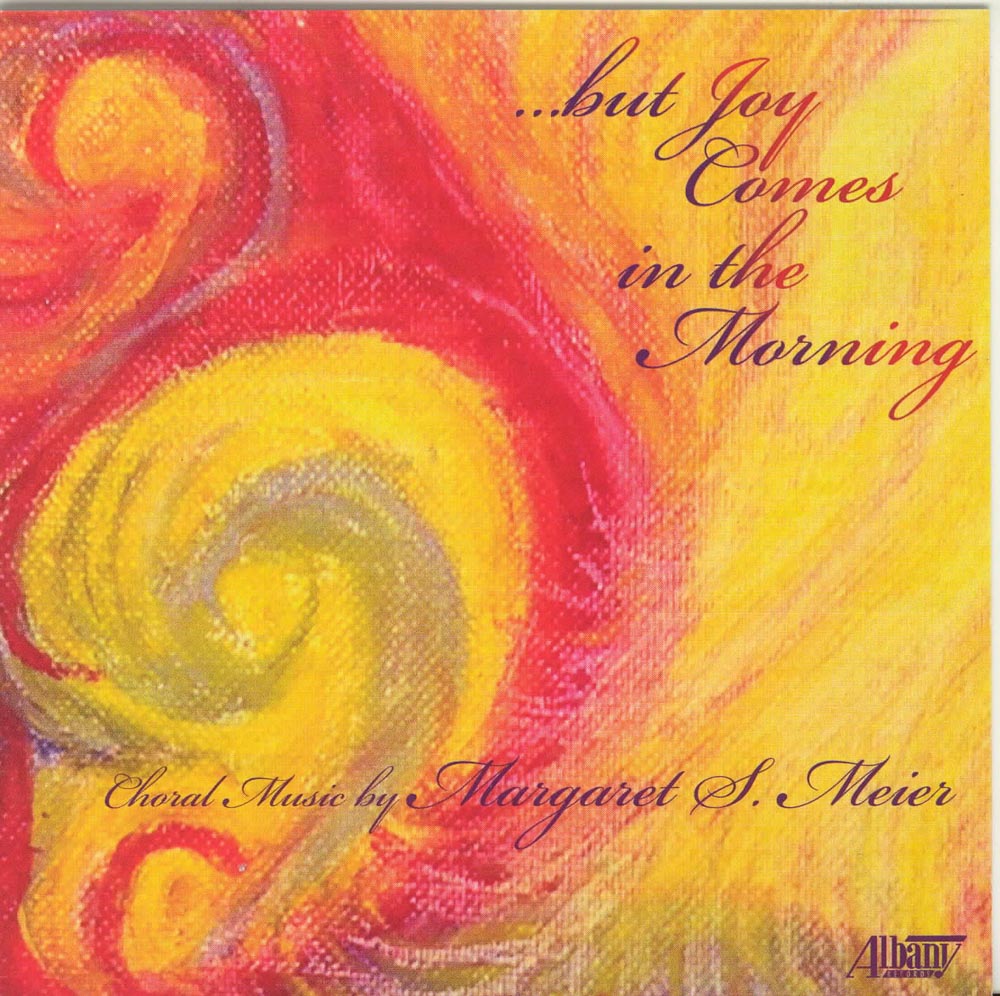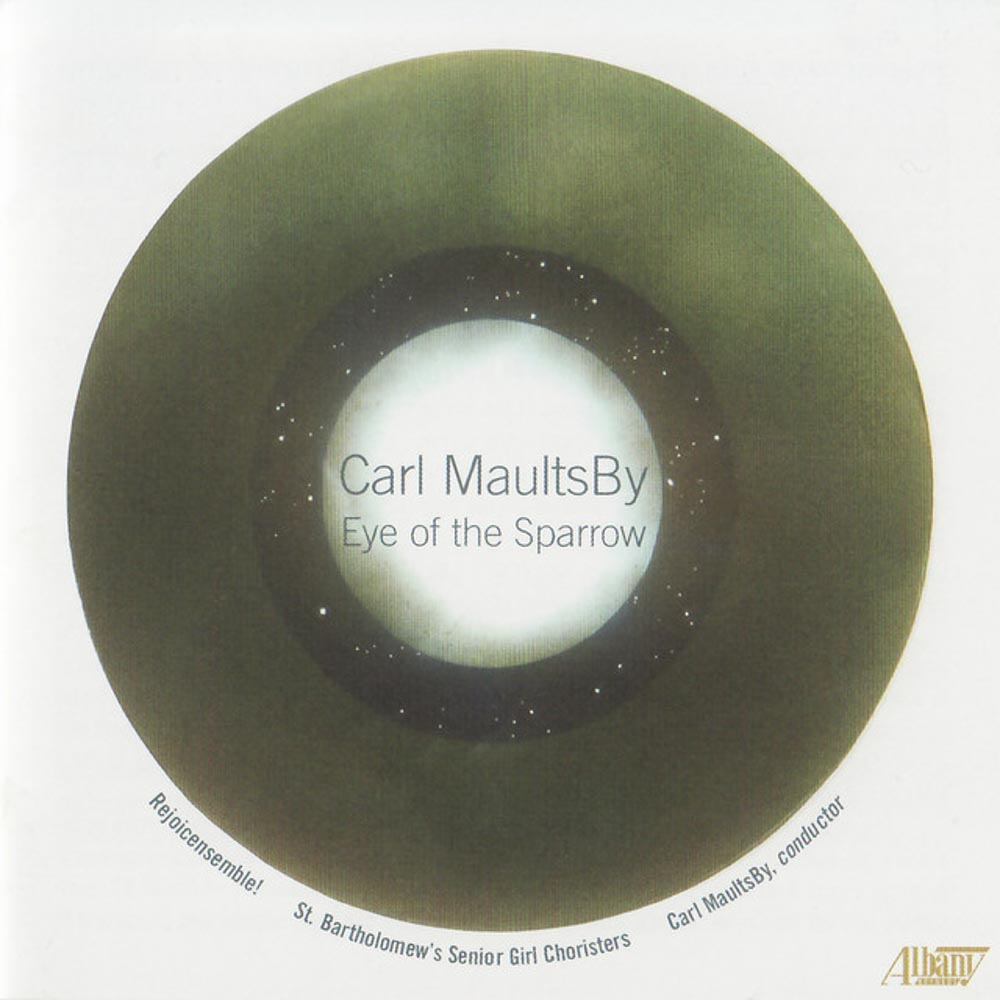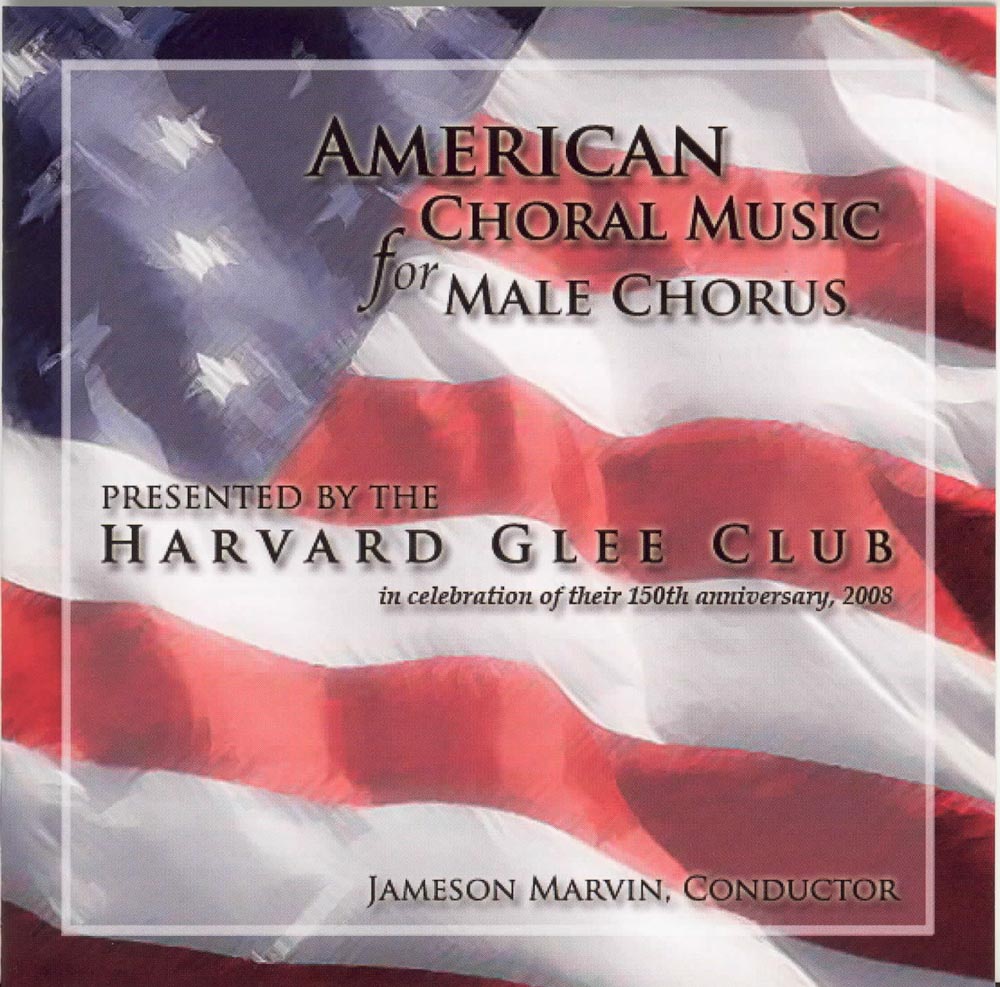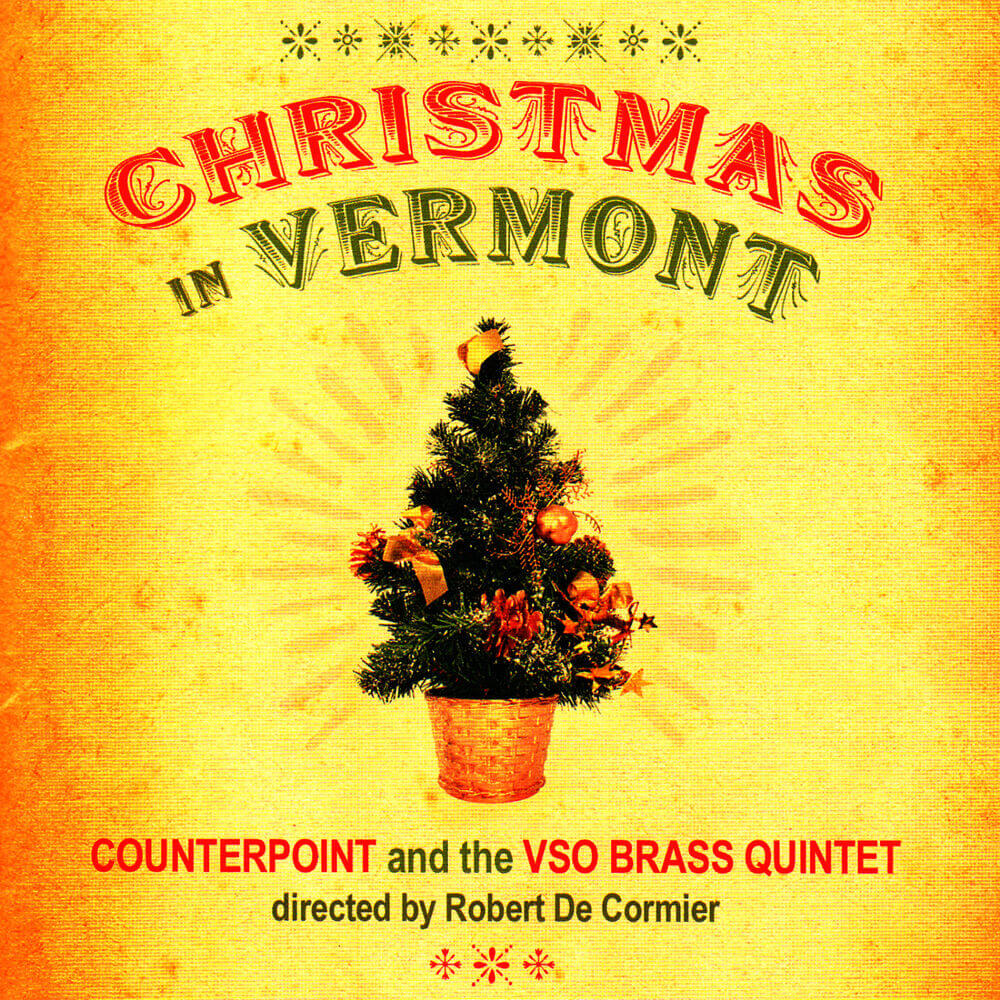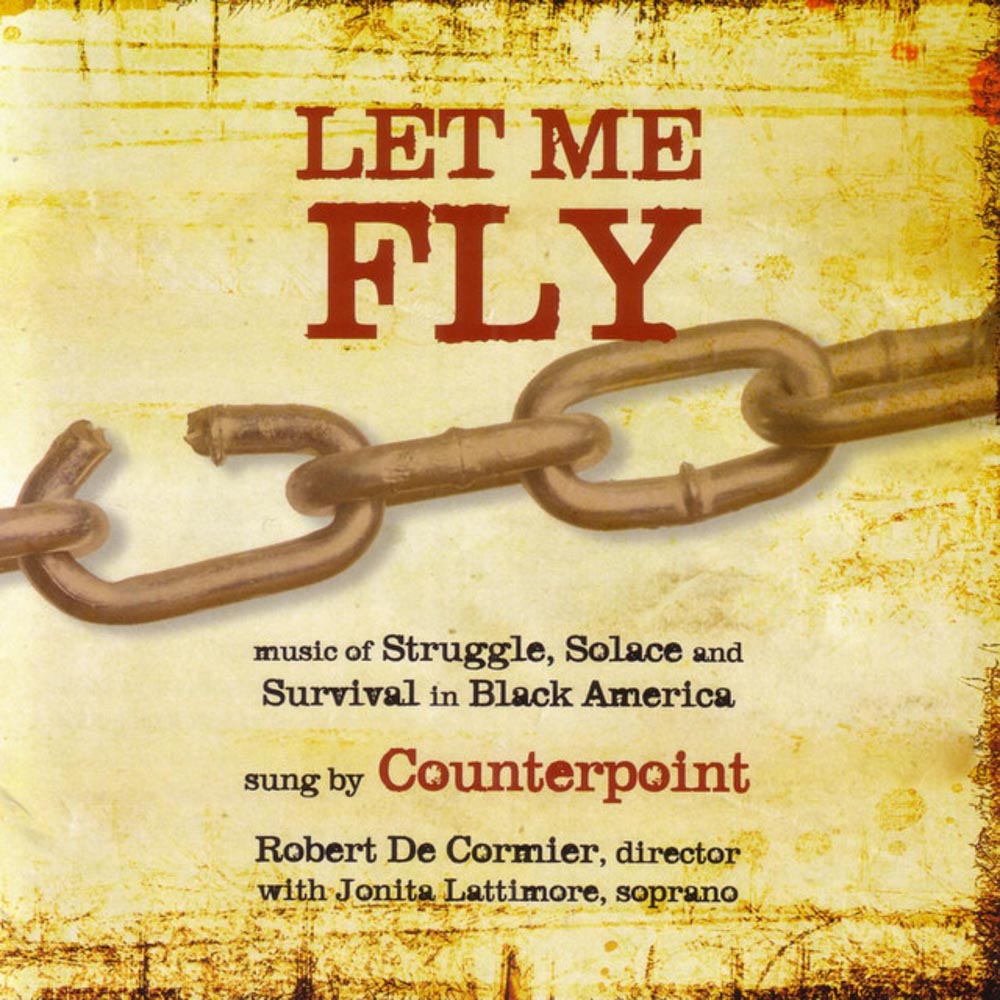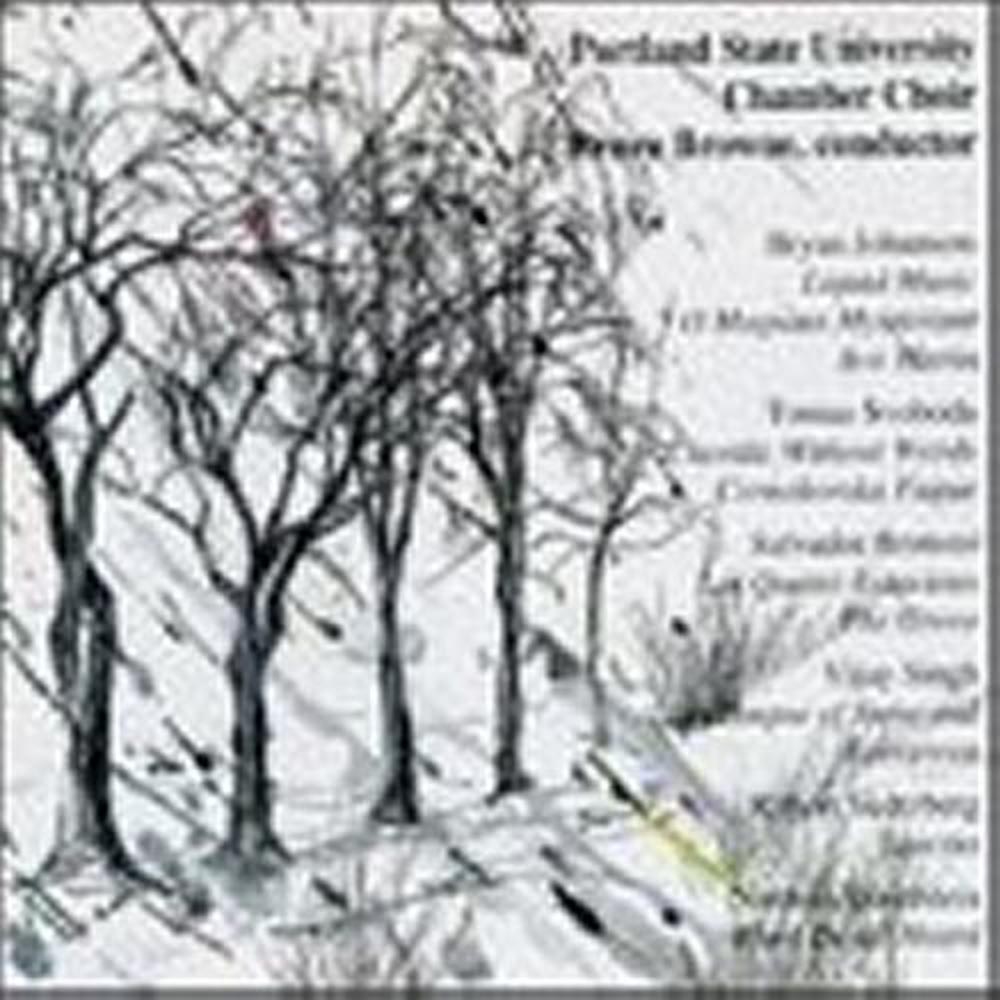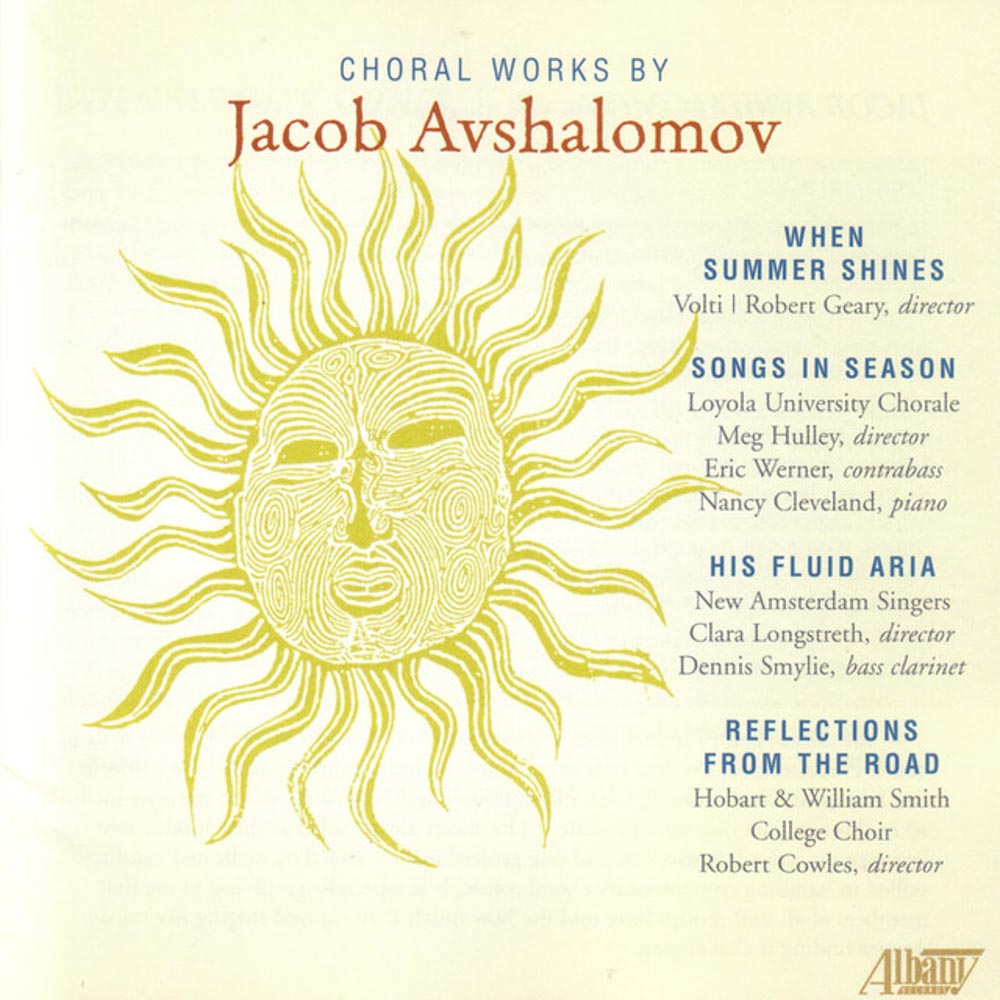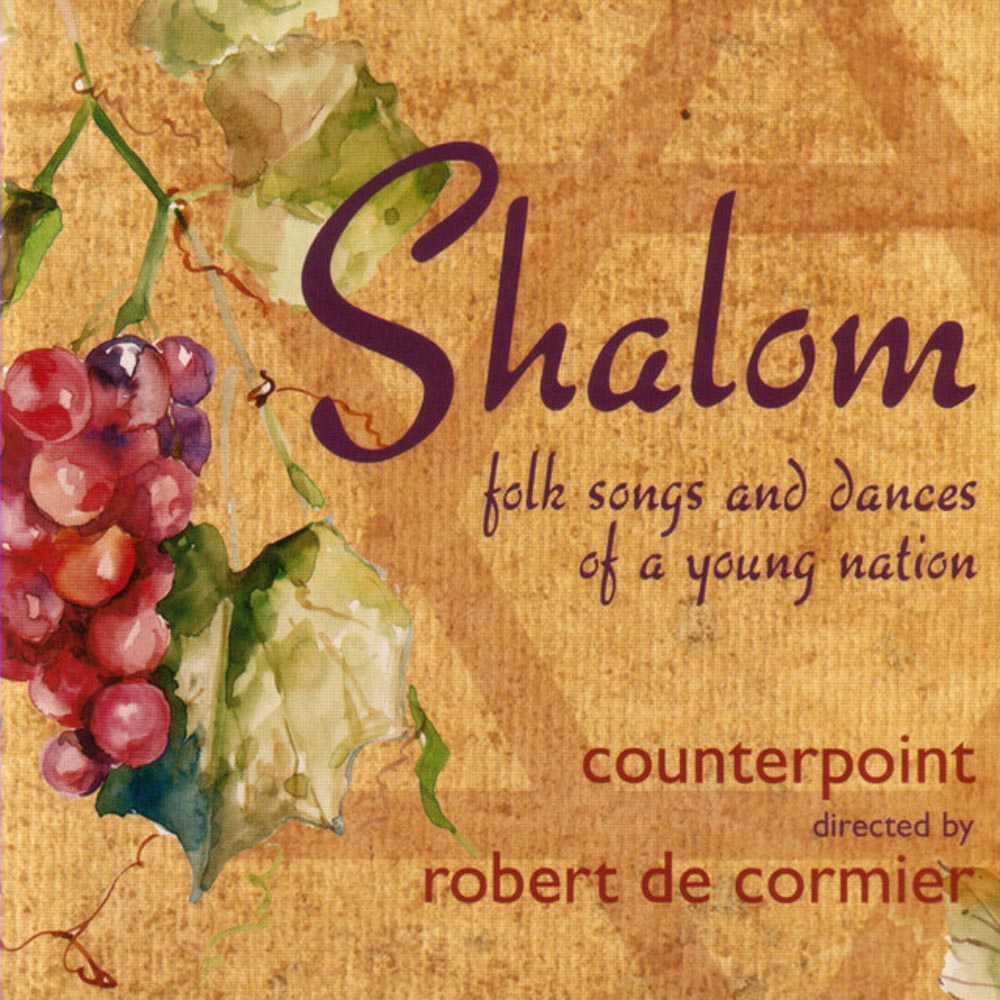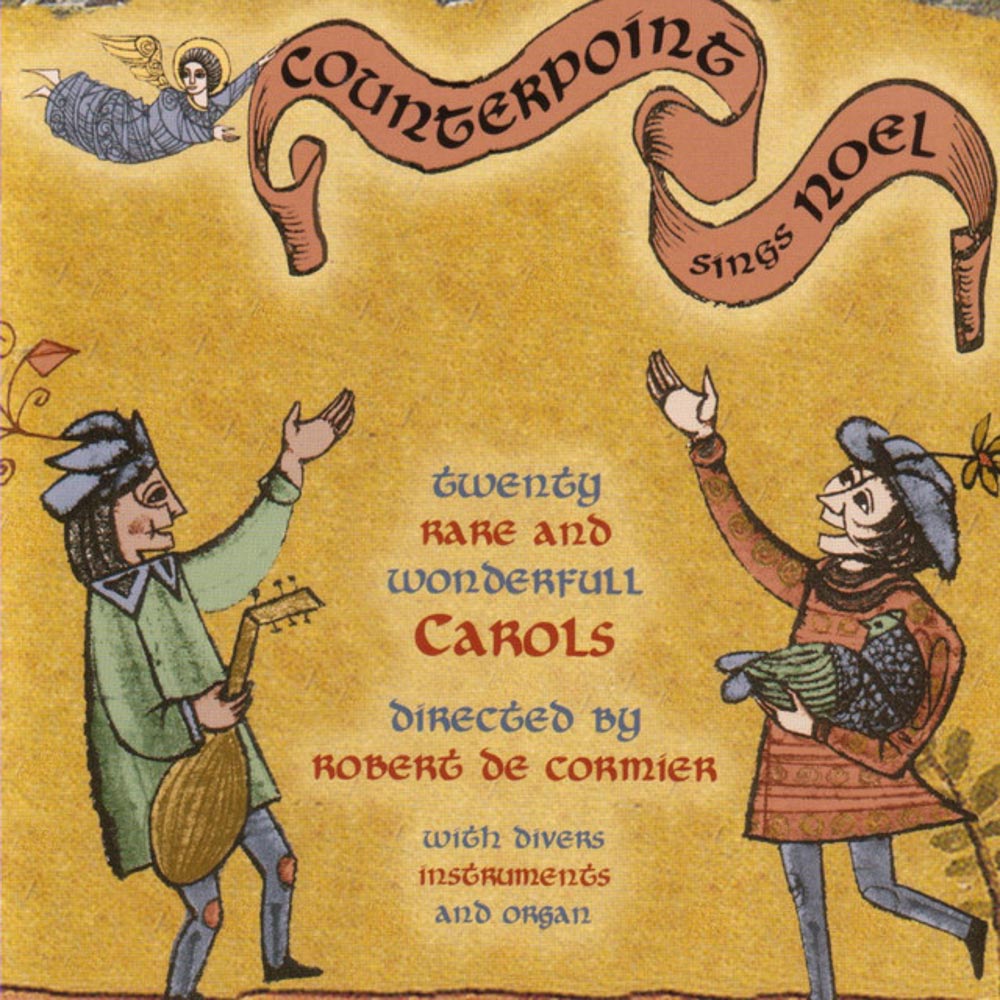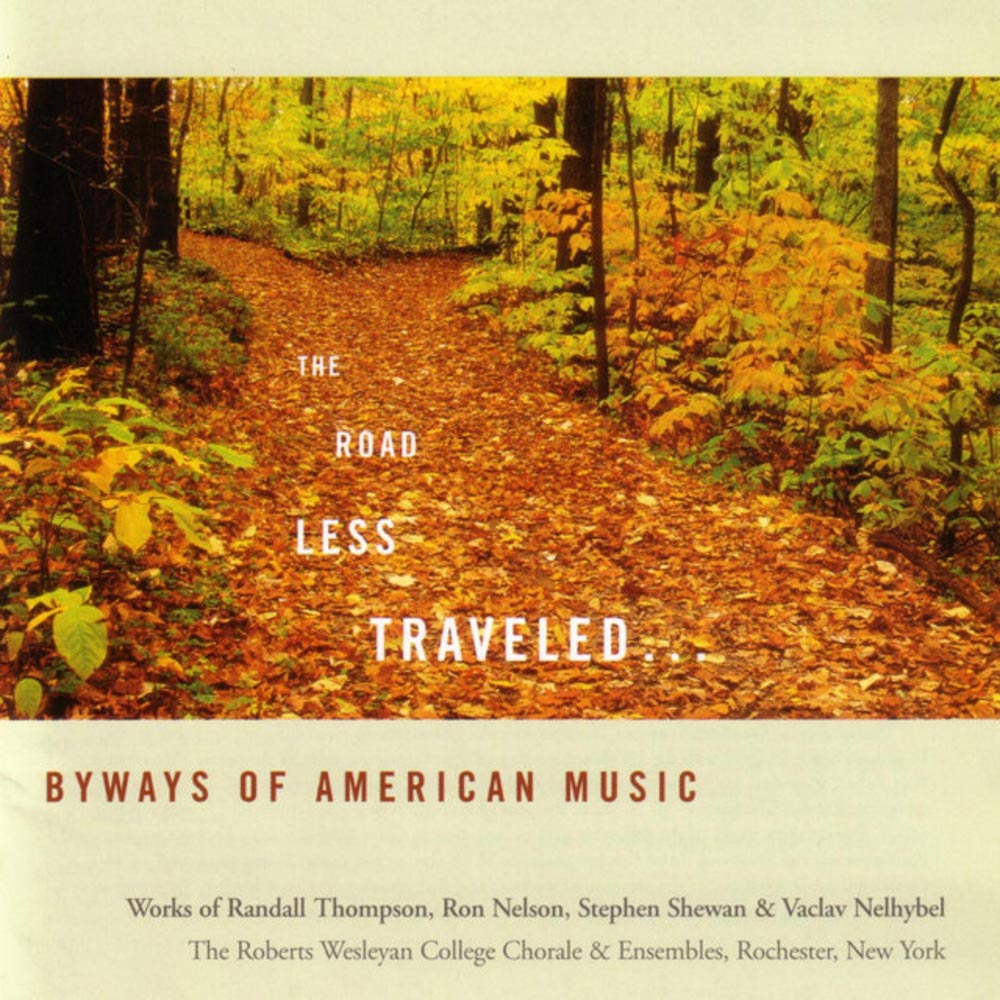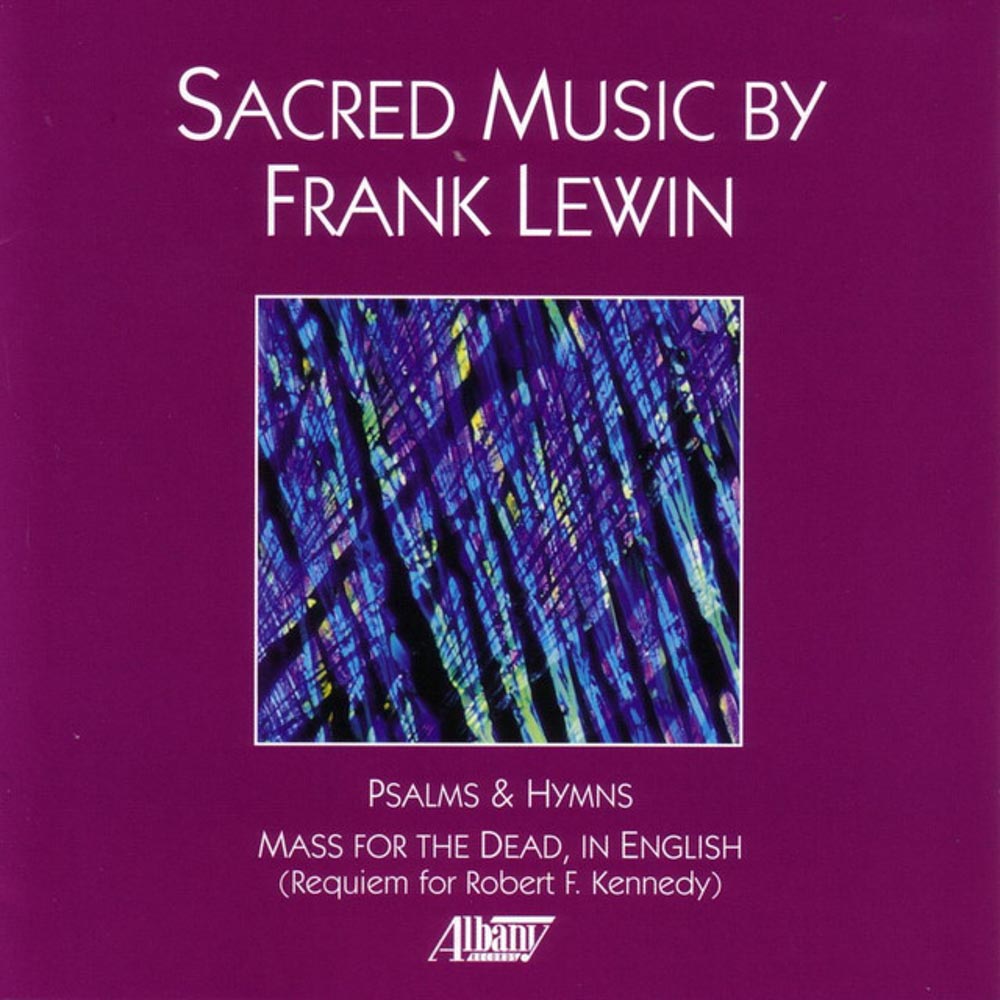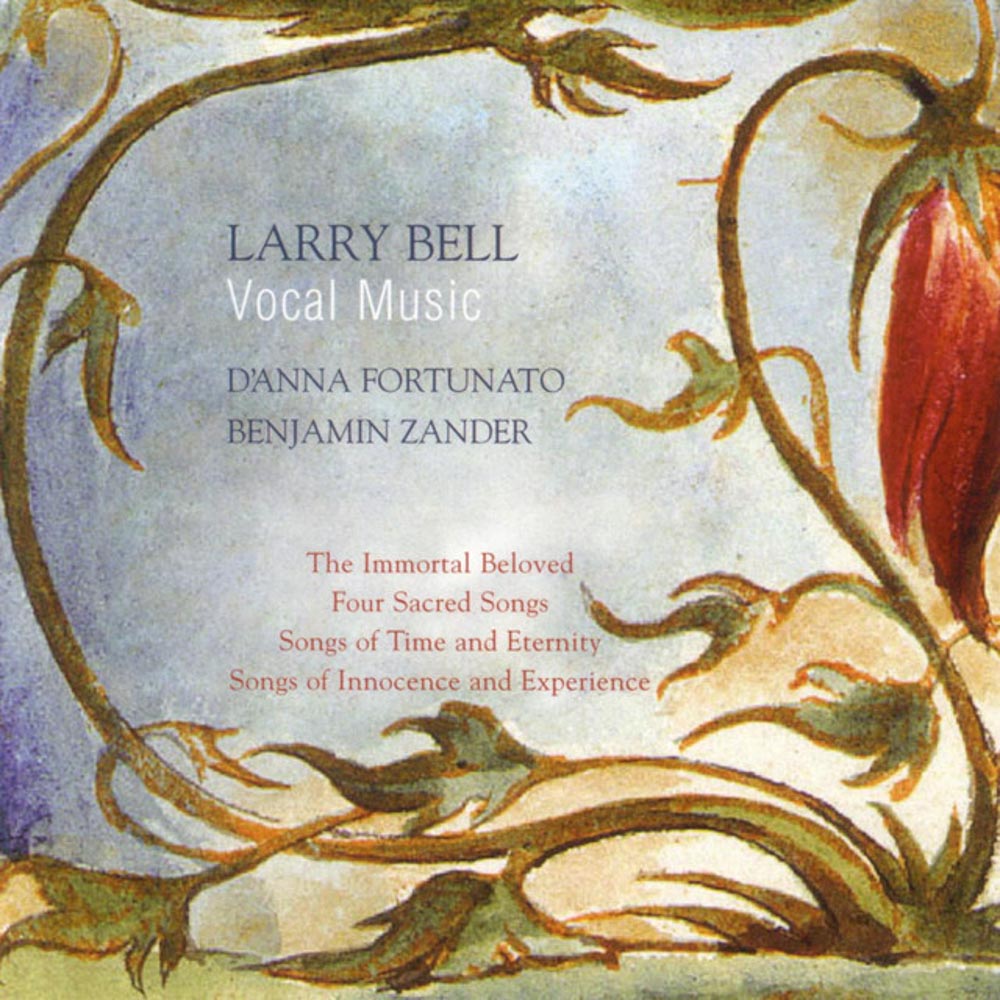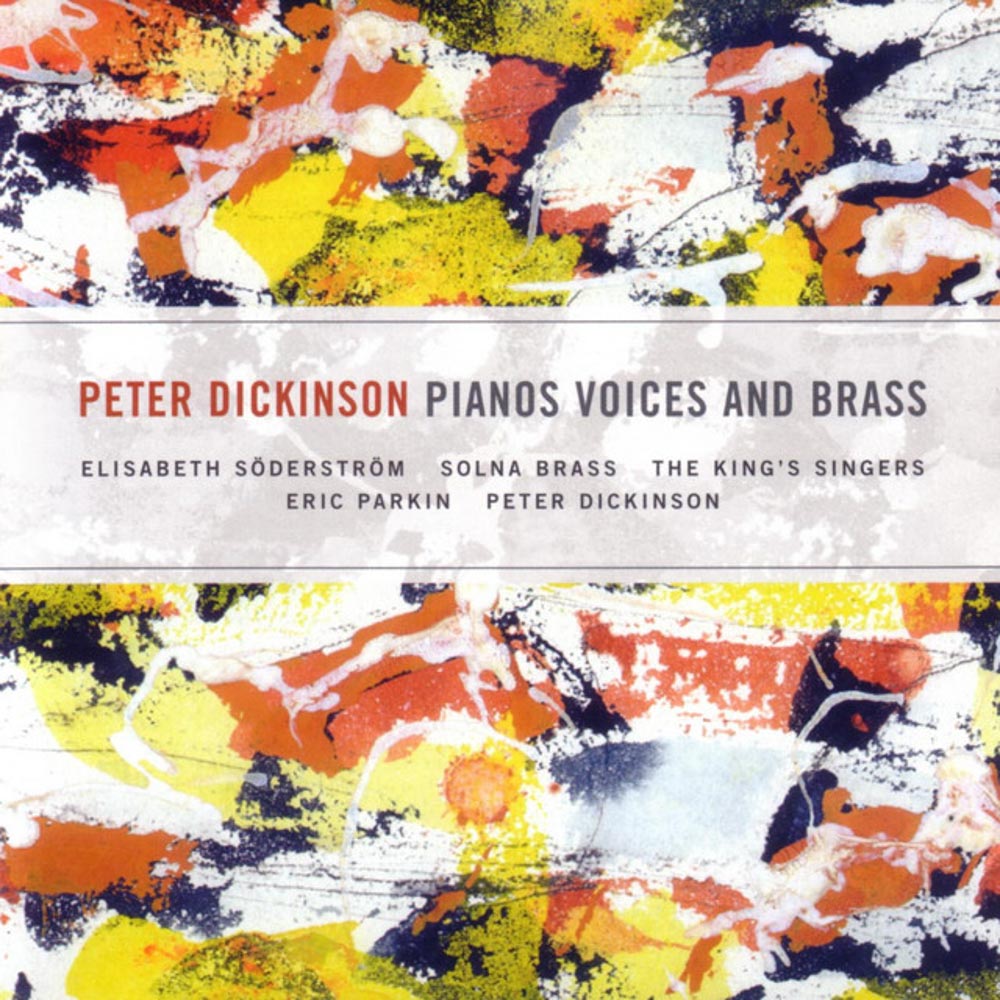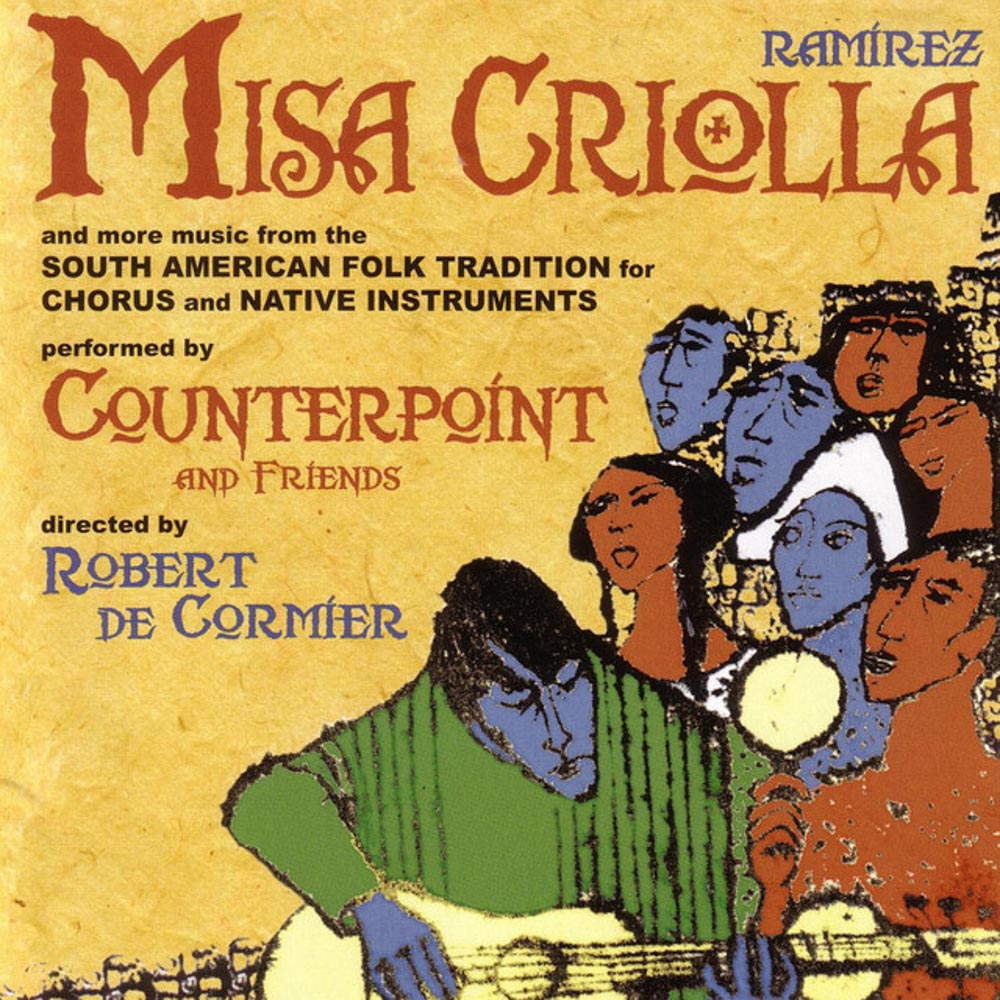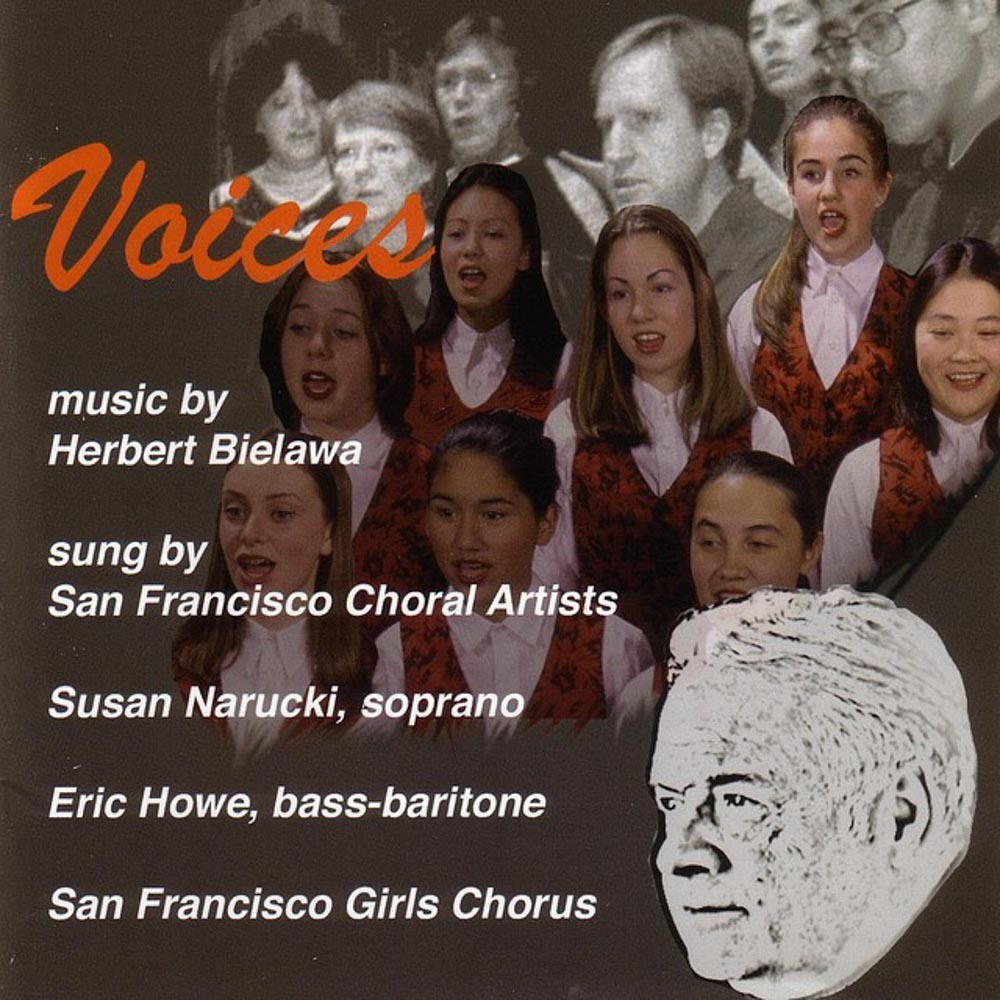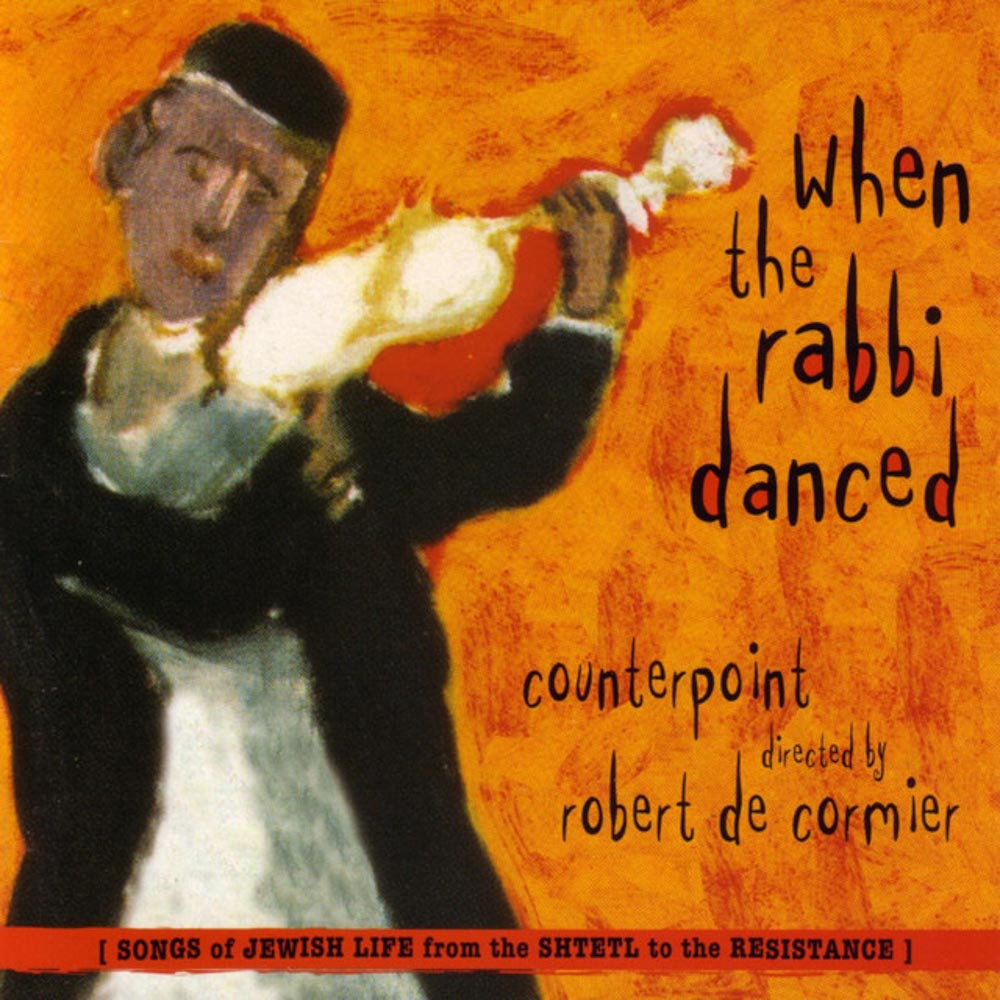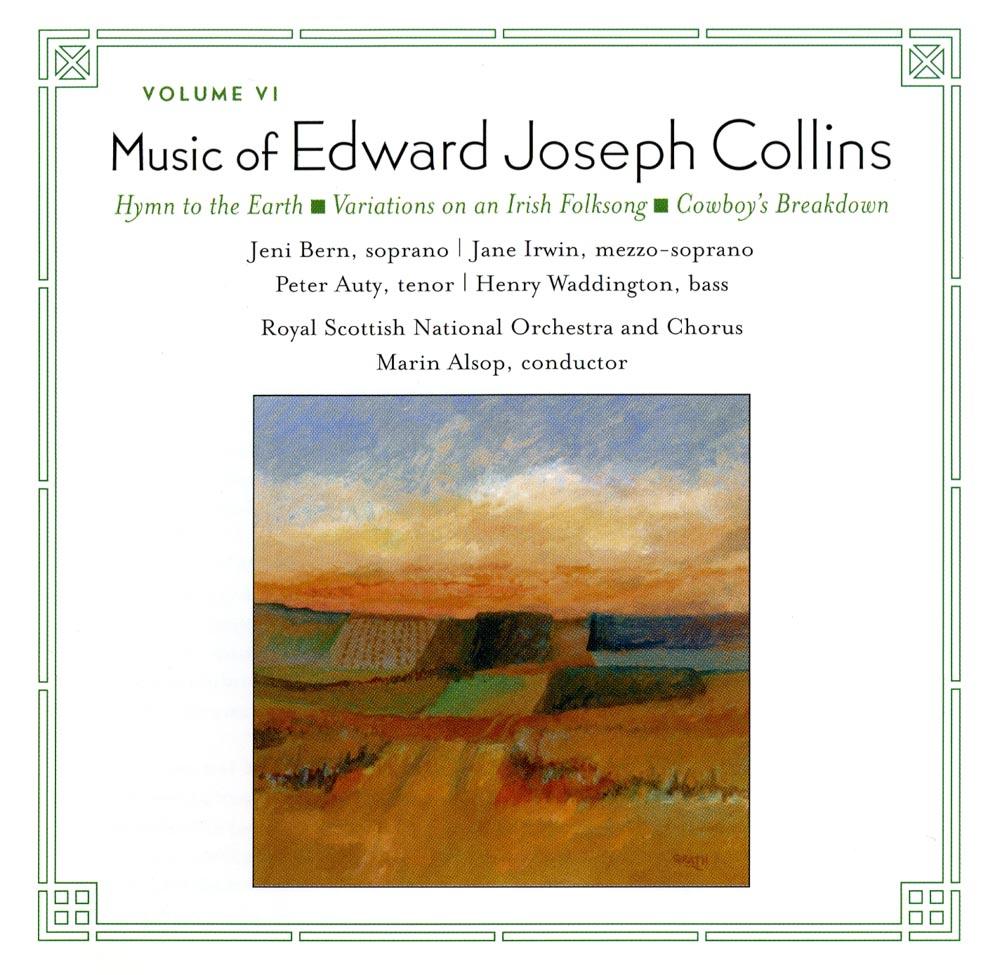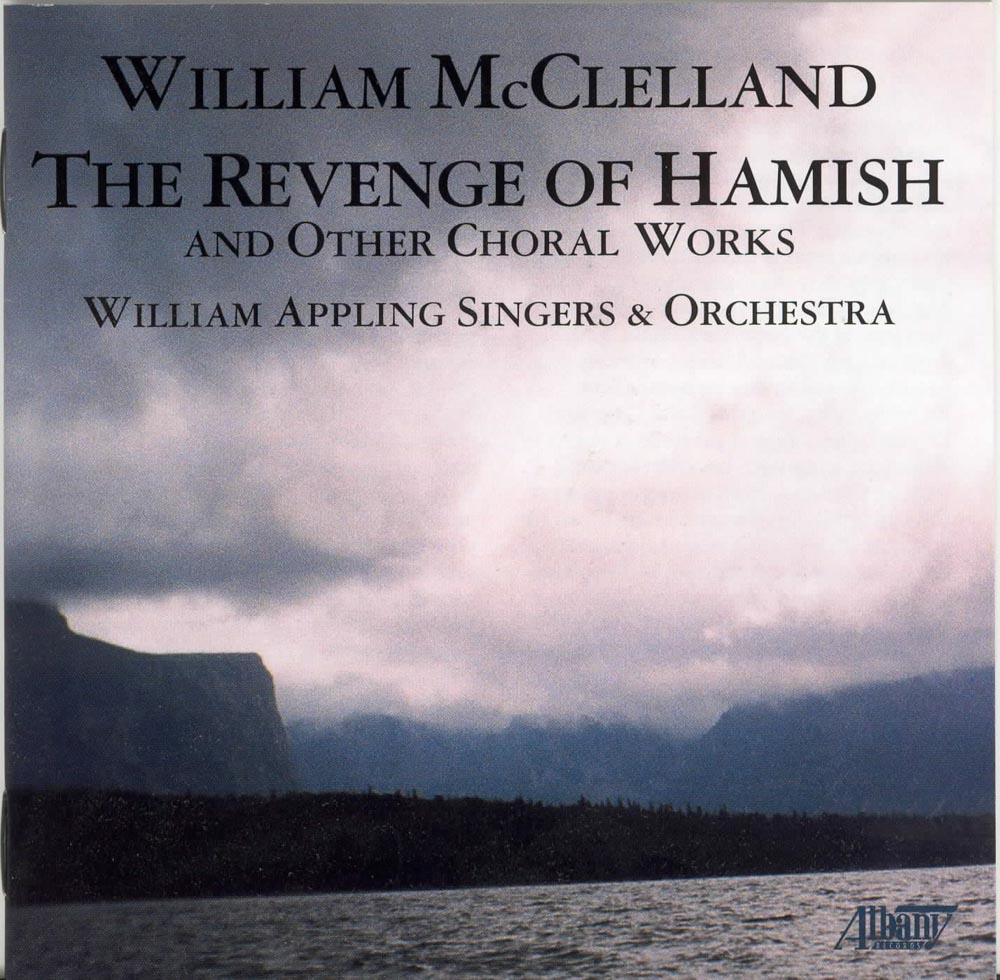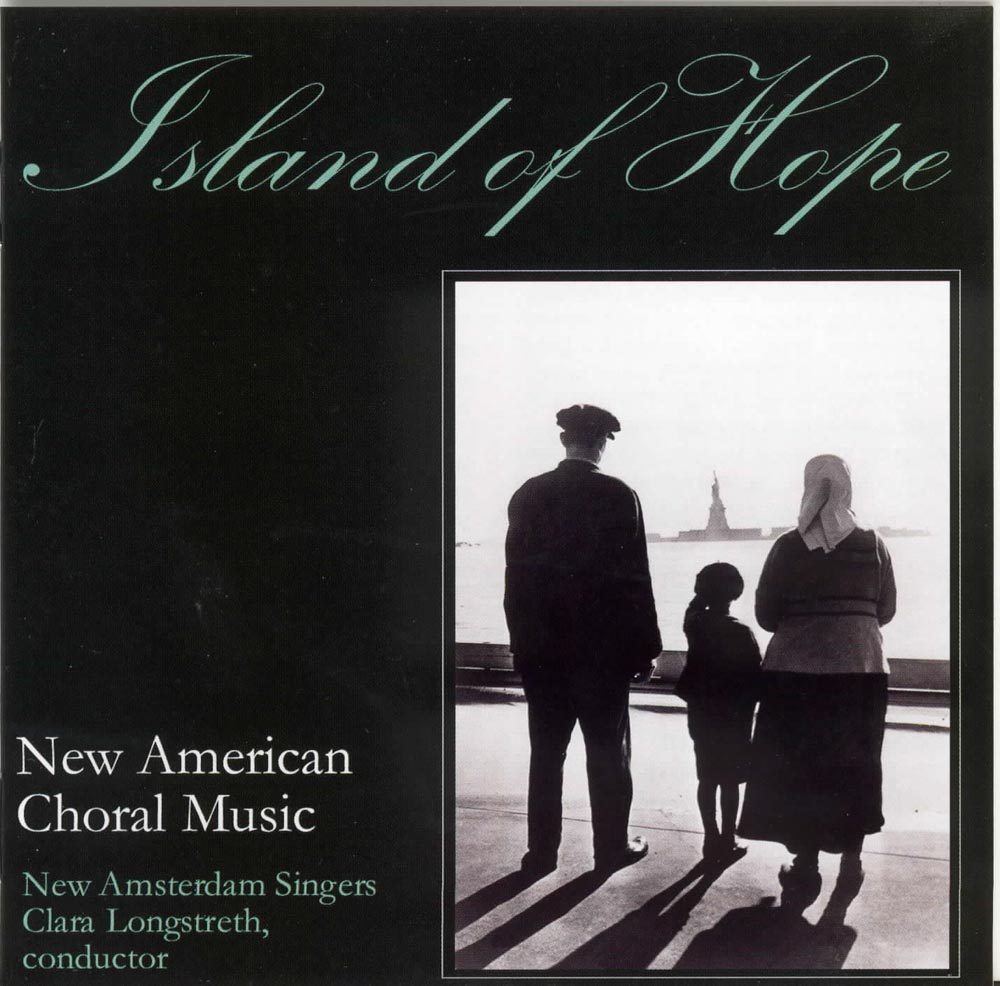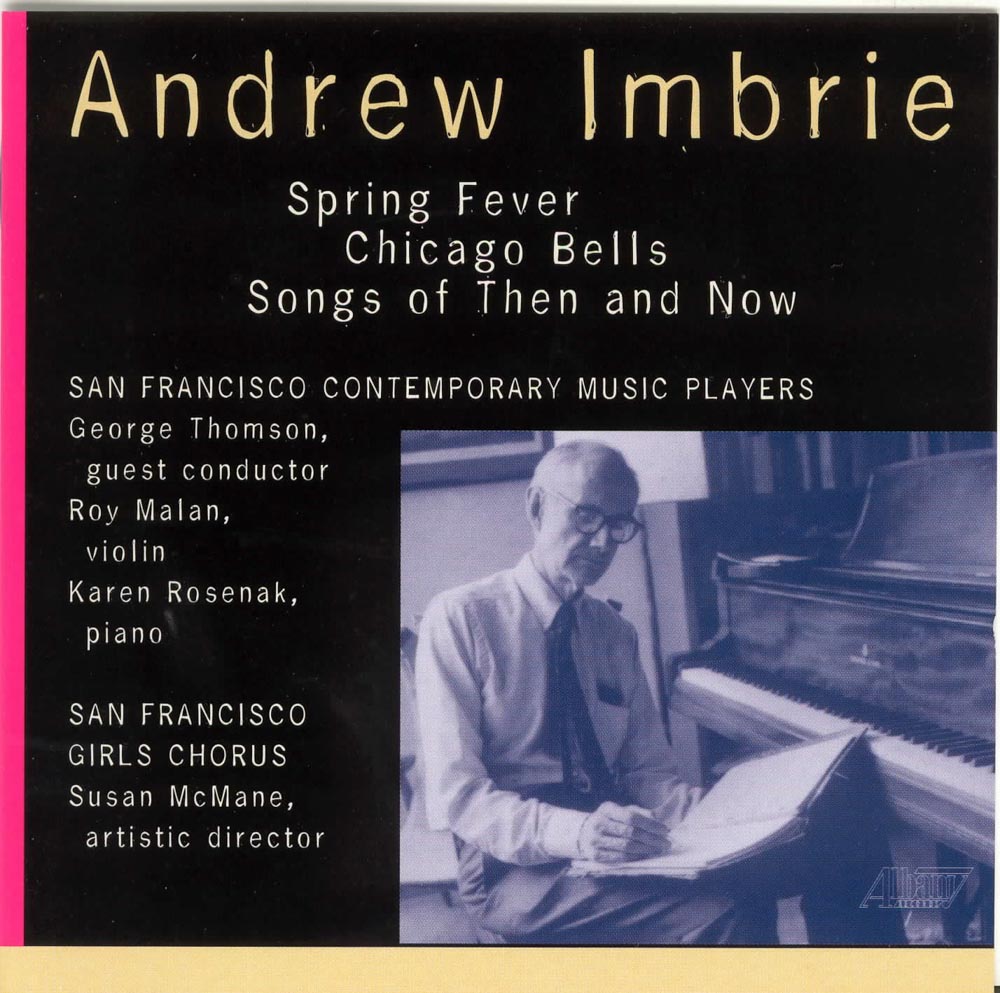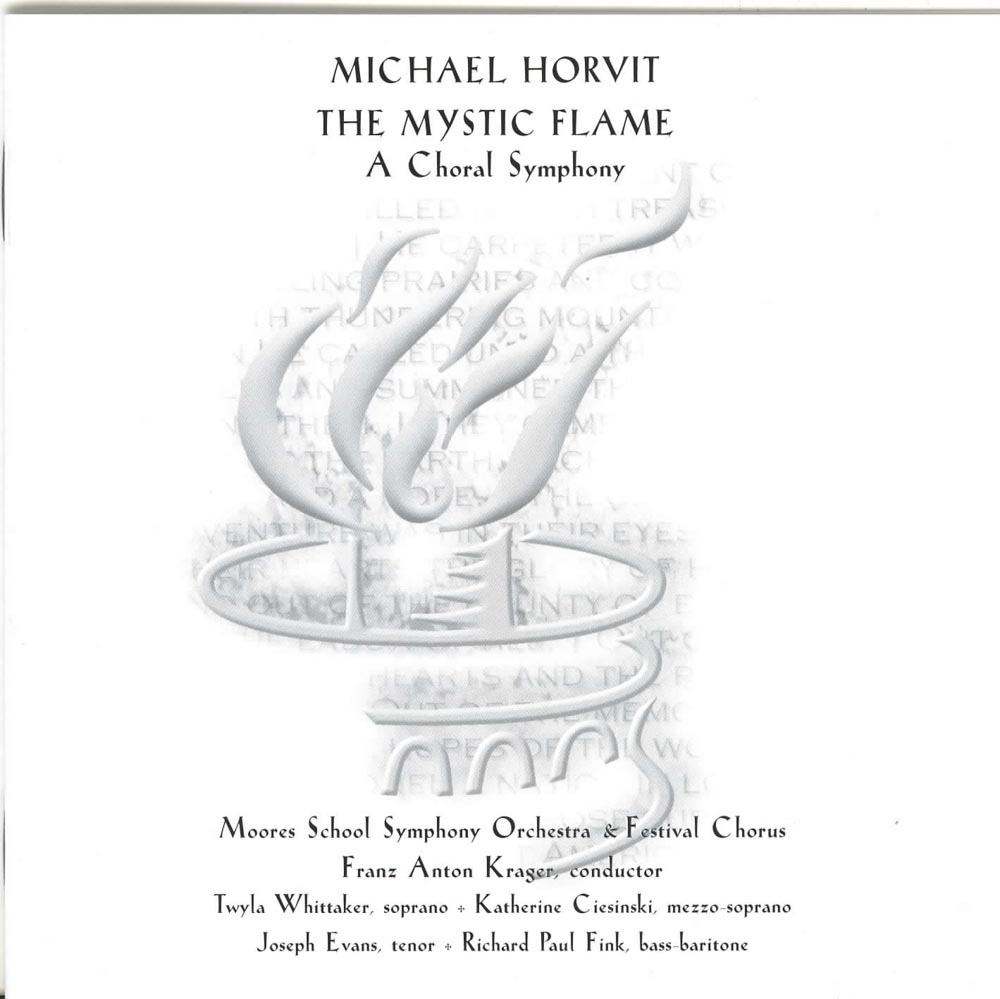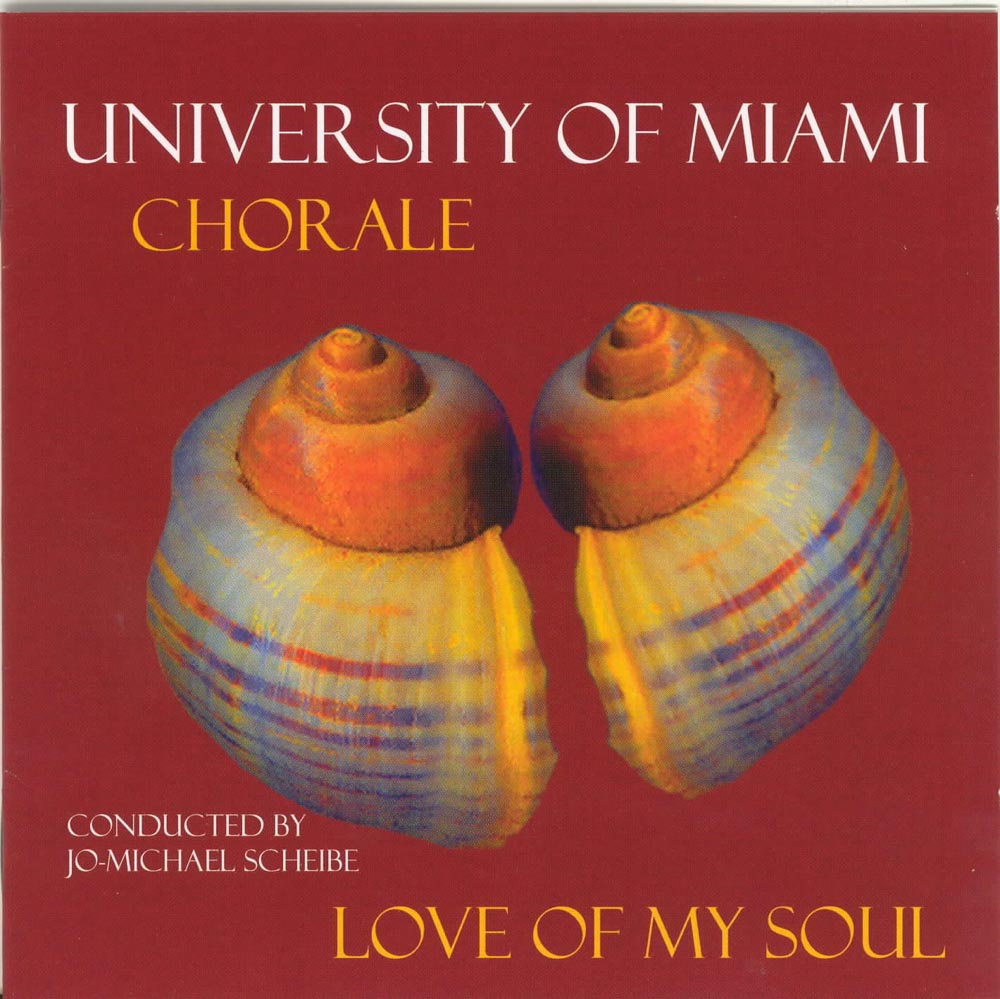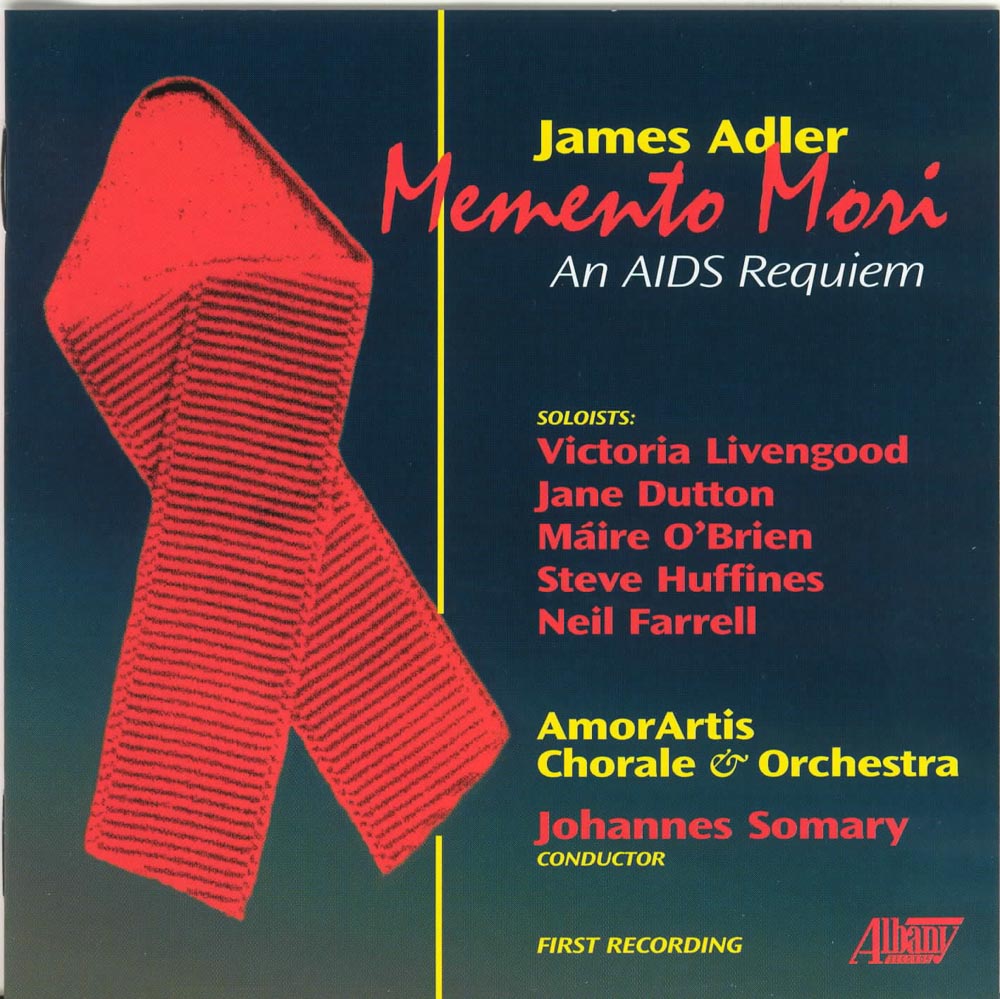Catalog #: TROY1026
Release Date: June 1, 2008ChoralThis recording of the choral music of Margaret Meier features A SOCSA Quilt, which details the journey, through words and music, of survivors of childhood sexual abuse from the distressing memories of post-traumatic shock through healing and recovery. Margaret Meier received her Bachelor's degree from Eastman and her Ph.D. in composition from UCLA. She has taught at a number of universities and is currently on the faculty at Mt. San Antonio College in Walnut, California. This CD represents the core of her musical passion: music that expresses life experience and that celebrates connection to the love and care of God.
Catalog #: TROY0995
Release Date: February 1, 2008ChoralCarl MaultsBy is a contemporary "renaissance artist" whose talents have been utilized both in the commercial realm of musical theatre, film, television, records and in the cultural media as well. A former artist and repertoire staff producer for RCA records, MaultsBy attended Columbia University where he studied with the late Vladimir Ussachevsky and Mario Davidovsky. His credits include liturgical music, music for the Harry Belafonte film Beat Street and the dance music for the Broadway musical "It's So Nice to be Civilized." As he writes, "Eye of the Sparrow" was conceived as a joint installation project between visual artist Karen Fitzgerald and myself...which took place in January 2006, at the Celebration of the Life of Dr. Martin Luther King at St. Bartholomew's Church, New York City. The title was inspired by the evangelical hymn, "His Eye is on the Sparrow," a personal favorite of Dr. King."
Catalog #: TROY0991
Release Date: December 1, 2007Choral2008 will mark the 150th anniversary of the internationally renowned Harvard Glee Club, the oldest college chorus in America. Originally founded by students to sing college songs and glees, it was in 1912, under the dynamic leadership of Dr. Archibald T. Davison, that the Club developed a repertoire of distinction and gained its reputation. Under the direction of Jameson Marvin since 1978, the Harvard Glee Club has only enhanced its reputation, continuing to draw upon six centuries of repertoire, including secular and sacred material. They have demonstrated a particular expertise for American choral music, and this retrospective, covering more than 20 years of performances, serves as a perfect example of why the Harvard Glee Club has been lauded throughout its history.
Catalog #: TROY0988
Release Date: December 1, 2007ChoralThe United Society of Believers in Christ's Second Appearing, called the Shakers, came to the New World in 1774. Ann Lee Standerin, called Mother Ann by her followers, traveled to America with seven disciples to establish the Shaker religion in the New World. The group was so named because of fervent prayer rituals in which they entered into trance-like states Ñ twitching, shaking, whirling, singing and dancing, seeking transcendence from the burdens of sin. A gentle, highly ethical people there were, at the height of the movement in 1850, 6,000 Shakers, a number that began to decline after industrialization took over. Because the Shakers believed the human voice to be the perfect instrument for the expression to God, they were prolific composers. It is said that there are over 10,000 hymns in existence. This unique disc presents both original hymns and modern American works based on the materials. Fittingly, the first of these is one that is beloved by many: Aaron Copland's setting of Simple Gifts.
Catalog #: TROY0985
Release Date: November 1, 2007ChoralThe Counterpoint Chorale and the Vermont Symphony Brass Quintet gave their first holiday concert in 2003 and, after countless requests, here is their first CD. It begins with a 50th anniversary performance of the late Daniel Pinkham's marvelous Christmas Cantata and continues through a bright and joyful collection of traditional tunes and discoveries. Christmas in Vermont is a feast for your ears and a gift for your heart.
Catalog #: TROY0896
Release Date: December 1, 2006ChoralDirected by the renowned Robert De Cormier, the professional vocal ensemble Counterpoint debuted in 2000. Dedicated to promoting choral chamber music and giving the public the opportunity to hear rarely performed works and unique arrangements, their concerts and recordings have a devoted following. In addition to this new CD, they can be heard on Albany TROY676, 746, 801 and 823. De Cormier writes, " I have been involved in African-American music, in one way or another, for almost 60 years. In 1948 I became the music director at Camp Unity, an interracial holiday camp, whose clientele were just about half black, one-half white. Every Sunday a chorus would be recruited from the new campers and rehearsals would begin on Monday. On Friday or Saturday night we would perform together as part of the weekend program. Almost every concert included some African-American music...in 1963 the De Cormier Singers, a professional vocal ensemble, made its debut in New York City. For the next 25 years we toured the United States and Canada. We were always an interracial group and the concert programs almost always included African-American material. Many of the songs on this new CD were originally arranged for them.
Catalog #: TROY0243
Release Date: October 24, 2006ChoralPacific Northwest composers sing not with one voice but with many, as this collection of choral music demonstrates. While five of the six composers represented here have a close connection tot he Northwest, their music is as different as the peaks of the Cascade Mountains. Four of them - Bryan Johanson, Salvador Brotons, Tomas Svoboda and Vijay Singh - all live in Portland, Oregon and make up the composition faculty in the Department of Music at Portland State University. However, their compositional styles range from affirming, tonal sonorities to exuberant folk melodies of Eastern Europe. The Portland State University Chamber Choir was formed in 1975. Its conductor, Bruce Browne, is professor of music and chairs the vocal-choral department there.
Catalog #: TROY0820
Release Date: March 1, 2006ChoralJacob Avshalomov is one of the great veterans of American music. He studied with his father Aaron, as well as Ernst Toch, Bernard Rogers and Aaron Copland. His orchestral, instrumental and choral works are full of classic American melodies, rhythms and harmonies; in short, the kind of music "they don't write anymore." Serious listeners to American music have him to thank for those pioneering recordings from the late 1950's and early 1960's with his beloved Portland (Oregon) Youth Symphony, which introduced many of us to composers such as Benjamin Lees and William Bergsma. This disc features his wonderful choral music, much of which is based on texts by his wife Doris. These works all fall into the great American choral tradition of Randall Thompson and Copland. More of Avshalomov's music can be heard on TROY115, 160, 249, 296 and 502.
Catalog #: TROY0823
Release Date: February 1, 2006ChoralRobert De Cormier's Counterpoint, Vermont's premiere professional vocal ensemble, debuted in 2000 and can be heard on Albany TROY676 (When the Rabbi Danced), TROY746 (Misa Criola) and TROY801 (Noel). Here they present their latest album that brings together new arrangements, ranging from traditional to contemporary, of some of the best known and loved Israeli folk-songs. Unlike European folk-songs, whose origins tend to be vague and lost in the past, most of these songs originated in the 20th century and have known composers and poets. Yet they are folk music just the same, for they live now in the oral tradition. Several generations of Jews have grown up singing them, and some songs, such as Tsena Tsena, Shalom Chaverim and, of course, Hava Nagila, have achieved mainstream recognition. The purpose of Israeli folk-songs was to inspire a new national cultural identity through which, in the words of Hinei Ma Tov, Jewish brothers and sisters from many lands would dwell together in unity. Among many Jews and Israelis throughout the world the songs evoke sentiments of pride and belonging. And despite the inner conflicts between Israelis today and the violent conflicts with its neighbors, the message of this disc is the sincere hope that the entire region may someday achieve unity and peace.
Catalog #: TROY0801
Release Date: October 1, 2005ChoralRobert de Cormier, a graduate of Juilliard, acted as music director of the New York Choral Society for seventeen years. His other conducting engagements have taken him from Broadway and opera to the Berkshire Choral Institute, the Zimriya World Assembly of Choirs in Israel and numerous tours throughout the United States and Europe with the famed Robert de Cormier Singers. He has also been musical arranger and director for Harry Belafonte and Peter, Paul and Mary. In 2000 he established Counterpoint, an eleven-voice vocal ensemble based in Vermont. Here they sing a beautiful collection of carols covering many periods and cultures, celebrating the holiday season in truly memorable fashion. Counterpoint is also featured on two other Albany releases: When the Rabbi Danced (TROY676) and Missa Criolla (TROY746).
Catalog #: TROY0783
Release Date: September 1, 2005ChoralThis is a wonderful collection for fans of American composers and choral works alike. Stephen Shewan writes music in all media but has a special affinity for vocal and ensemble works (these can be heard on an earlier Albany release, TROY149). The Celebration Overture, written in honor of the 50th anniversary of KUHF-FM, Houston, Texas, is both celebratory and optimistic. Much of the same spirit carries over to For Dancing Hearts and Tunes while the two other choral pieces reflect a more meditative mood. Randall Thompson didn't compose a particularly large catalog of works but his choral works (which can be heard by these same forces on TROY362) and his beloved Symphony No.2 have assured him a place in the American repertoire. Frostiana, based on Robert Frost poems, is as perfect an example of his charm and nationalistic spirit as one could hope to hear. Ron Nelson writes some of the most exuberant music for band ever composed, and you might remember his wonderfully breezy Savannah River Holiday recorded so many years ago by Howard Hanson. The Te Deum was commissioned by the United States Air Force Band and Singing Sergeants. It is a work full of color, splendor and rich sonorities. Finally we have a work by the Czech-born Nelhybel, a truly prolific composer (over 400 published works) who really deserves greater exposure. The Psalm 150 is a rich, reverent work. The Roberts Wesleyan College Chorale is noted for its unique sound and performs regularly with the Rochester Philharmonic in a wide-ranging repertoire.
Catalog #: TROY0778
Release Date: August 1, 2005ChoralThe concept for Seek the Eternal began in the late 1980s when a friend of John Schlenck's suggested the idea of an interfaith oratorio. In pondering how to incorporate three different traditions - Christian, Jewish and Vedantic - Schlenck decided to tell one story: "a kind of universal pilgrim's progress, using a collage of texts from the major traditions....texts from the different traditions would flow into each other without interruption, demonstrating the universality of spiritual truth." The work was first performed in conjunction with a Parliament of the World's Religions held in Chicago in 1993. John Schlenck graduated from the Eastman School of Music with a major in composition and moved to New York City. There, he soon discovered his affinity with Indian thought and joined the Vedanta Society of New York. Serving as its music director since 1961, Schlenck has composed many songs and a number of larger works with Vedantic and other spiritual texts. His instrumental works include three symphonies, a clarinet concerto, and numerous chamber and solo compositions. This is his third recording on Albany Records.
Catalog #: TROY0769
Release Date: August 1, 2005ChoralThis recording of Frank Lewin's sacred music is the fourth in his series on Albany Records. Other recordings include an opera, a disc of song cycles, and a recording of music written for films and television documentaries. The major work on this offering is the Mass for the Dead, in English, which was written as a requiem for Robert F. Kennedy. As the composer states, "The impetus for writing this Mass for the Dead came as I stood on the platform at Princeton Junction, amid a crowd of silent onlookers, as the train bearing the body of Robert F. Kennedy slowly rolled by on its way from New York to Washington. Vatican Council II had recently decreed that services were to be conducted in the vernacular, and thus this requiem mass was set to English words. It was first performed during a memorial service for Kennedy a year after his death on May 27, 1969."
Catalog #: TROY0741
Release Date: August 1, 2005ChoralComposer Larry Bell has been awarded the Rome Prize, fellowships from the Guggenheim and Rockefeller Foundations, and the Charles Ives Award. His music has been widely performed in the United Sates and abroad by internationally known orchestras and ensembles. Bell received his DMA from The Juilliard School, working in composition with Vincent Persichetti and Roger Sessions. He is chair of music theory at the New England Conservatory of Music Division of Preparatory and Continuing Education. This disc of Bell's song cycles begins with The Immortal Beloved based on the three letters Beethoven wrote to Antonie Brentano in July 1812. According to the composer, "The music was conceived from the point of view of the recipient of the letters.... Four Sacred Songs were designed as studies for a larger commissioned orchestral work entitled Sacred Symphonies. Each song is a setting of a familiar hymn tune text." Songs of Time and Eternity are based on a grouping of poems by Emily Dickinson on this theme. William Blake's late 18th-century Songs of Innocence and Experience "...is a famous example of an adult's perspective of the child. The child in these poems is rebellious, joyful, persistently playful, Christ-like, and always natural..." The work is written for children's chorus and orchestra.
Catalog #: TROY0760
Release Date: June 1, 2005ChoralThe British composer, author and critic Peter Dickinson was born at Lytham St. Annes, Lancashire on November 15, 1934. His musical personality ranges widely from the three substantial concertos for organ, piano and violin (the first two on Albany TROY360) to the witty Rags, Blues and Parodies collection (TROY369); the Song Cycles (TROY365) show Dickinson responding to major poets such as Auden, e. e. cummings and Dylan Thomas and the vocal works have expanded the picture of his literary interests with settings of Emily Dickinson and the British poet John Heath-Stubbs. If you are a fan of British music that tilts to a more modern sound (similar to Harrison Birtwistle or Peter Maxwell Davies), Dickinson's works will have great appeal to you. Of additional interest is the participation of such important performers as Eric Parkin and the King's Singers. The Unicorns features renowned Swedish soprano Elisabeth Soderstrom in the reissue of the previously hard-to-find Bluebell LP.
Catalog #: TROY0756
Release Date: May 1, 2005ChoralJohannes Somary has achieved international prominence as conductor, composer, and organist. He is now in his 44th season as founder and Music Director of AmorArtis in New York. As a composer, he has won critical acclaim for his oratorios Ballad of God and His People and The Ultimate Quest as well as his dramatic cantata Is This Life?, given its premiere at the Kennedy Center in Washington, DC in 1994. As an organist he has received critical acclaim for his recording of the Handel concerti. As a teacher, he served for nearly four decades as chairman of the arts-and-music department at Horace Mann School. He is currently artist-in-residence at the Church of the Blessed Sacrament in New York City and in his 30th year as conductor of Connecticut's Fairfield County Chorale. He was born in Zurich, Switzerland and graduated from Yale University. The composer writes: "Taroko Concerto for Violin and Orchestra, is so named because much of the melodic material first came to me on walks with a friend in a little mountainous region of Taiwan called Taroko. It was composed during the two months following my departure as music director of Saint Patrick's Cathedral in New York. It was completed in October, 2003 and is in four movements. Easter Fantasia was first composed as a sonatina for trumpet and organ. In this form it was frequently performed by Martin Berinbaum, with me at the organ. It was re-designed for trumpet and orchestra in February, 2004. Much of the thematic material is based on Gregorian chants proper to the Easter season. The ancient hymn of thanksgiving known by its first two words, Te Deum, is still sung at the end of Matins on Sundays and on major feast days in convents, monasteries, and some churches all over the world. It is a jubilant hymn of praise to the Almighty. The Te Deum for the Millennium, which was commissioned by the International Order of Benedictines, was composed in 1999 and premiered in New York on May 23, 2001. The work is a celebratory cantata scored for soloists, chorus and chamber orchestra."
Catalog #: TROY0746
Release Date: April 1, 2005ChoralThis recording brings together a variety of choral works by 20th century Latin American composers, all of whom find inspiration in folk culture. Chief among the composers represented here is Ariel Ramirez. Born in Santa Fe, Argentina, he roamed the South American hinterland in his early twenties playing piano and studying regional musical traditions. After a brief stint in Buenos Aires, he spent several years in Europe, studying in Madrid and Vienna and teaching music in a German convent. Returning to South America in 1954, he completed his musical training in Buenos Aires, where his politically engaged popular songs rapidly earned him renown as a leader of the nueva cancion movement. His breakthrough onto the international stage came in 1967 with the first performance and recording of the Misa Criolla (Mass in Native Style). The success of this innovative work owes much to its timing. Set in Spanish rather than Latin, it was one of the first major masses composed after the Second Vatican Council mandated the use of the vernacular. It also profited from the period's burgeoning interest in folk music. As a result, the work quickly captured the imagination of audiences worldwide and has received thousands of performances. The mass's reception abroad, where its style was perceived as novel and exotic, actually helped stimulate appreciation for native culture among more skeptical audiences back in Argentina. Like all Ramirez' major works, the Misa Criolla draws substantially on the folk traditions in which he immersed himself as a young man. There are complete English texts for all the works included in the program booklet.
Catalog #: TROY0736
Release Date: April 1, 2005ChoralAlexander Levine was born in Moscow and studied piano from the age of six at the Gnessin Music School, and later he took up the clarinet. Upon graduation he was offered a place at the Moscow Gnessin Music Academy. During his college years he also held the position of Principal Guitar in the Orchestra of Russian National Radio and Television. In the years that followed he established himself as a composer working in collaboration with a variety of highly acclaimed performers in Russia. Since 1992, he has lived in the United Kingdom. He then continued to pursue his musical studies at the Guildhall School of Music and Drama where he studied with among others, Simon Bainbridge. The title Kolokola translates into English as church bells or rather the toll of the bells. A great deal can be said about the religious, historical, and philosophical aspects of bell ringing, and in Russian culture it had always been a particularly powerful, almost archetypal image. This image of church bells prevails throughout the entire work, which was originally conceived as a projection of various aspects of human existence with a wide range of historical, religious and Russian folklore cross-references. There are complete Russian/English texts included in the program booklet.
Catalog #: TROY0707
Release Date: October 1, 2004ChoralOne of nine choral ensembles in the University of Miami Phillip and Patricia Frost School of Music, the University Chorale was founded in 1993, by the current Director of Choral studies, Dr. Jo-Michael Scheibe. The Chorale has quickly established itself as one of Florida's leading collegiate choral ensembles. The voices are chosen from across campus, drawing both music majors and students from outside of the Frost School of Music. Jo-Michael Scheibe has degrees from California State University at Long Beach, and from the University of Southern California. He held positions in California and Arizona prior to his arrival at the University of Miami. He has served as artistic and music director of the Florida Philharmonic Chorus and is currently the artistic and musical director of the Master Chorale of South Florida. He also serves as Director of Music Ministries at the historic Coral Gables Congregational Church.
Catalog #: TROY0682
Release Date: September 1, 2004ChoralJohn Schlenck was born in Indianapolis. At age 21, he graduated from the Eastman School of Music with a major in composition and moved to New York City. There, he soon discovered his affinity with Indian thought and joined the Vedanta Society of New York. Serving as its music director since 1961, Schlenck has composed many songs and a number of larger works with Vedantic and other spiritual texts. His instrumental works include three symphonies, a piano concerto, and numerous chamber and solo compositions. After traveling the length and breadth of India for three years as a mendicant friar, Swami Vivekananda arrived at Kanyakumari, the southernmost tip of the country, in late December, 1892. This place of pilgrimage contains a temple to Goddess Kanyakumari, an aspect of the Universal Mother. About a quarter mile from shore, twin rocks jut out from the sea. After worshipping at Mother's temple, Vivekananda swam through the turbulent, shark-infested waters to the farther of the two rocks. He remained there for three days and nights on the solitary rock, meditating intensely on the condition of India - her present degradation, the misery of her people, her past glory and future potentialities. The composer writes: "in the winter of 1981-82, I spent three months in India, visiting many of the places where Vivekananda had stayed, meditated and taught. A high point was my visit to Kanyakumari. I was profoundly moved by the drama and pathos of Vivekananda's tour through India, by his compassion for the suffering people and by the nobility of his vision." It was from the recollections of this trip that the music on this CD was composed.
Catalog #: TROY0679
Release Date: July 1, 2004ChoralMargaret Garwood, like many earlier composers, is essentially self-taught. She passed the requirements for a Bachelor's degree in music by examination, and now holds a graduate degree in composition. She is greatly indebted to composers Julia Smith, Louise Talma, and especially Miriam Gideon for their support. While she has written several instrumental chamber works, the majority of her output is for voices, and includes four operas, numerous song cycles, and works for combined chorus and orchestra. Her operas have received fully staged productions in New York, Philadelphia and on the West Coast. They include The Trojan Women, The Nightingale and the Rose, Rappaccini's Daughter, and an opera for children entitled Joringel and the Songflower. She has written the librettos to all her own operas, with the exception of the first one. She is presently working on an opera based on Hawthorne's The Scarlet Letter.
Catalog #: TROY0653
Release Date: July 1, 2004ChoralHerbert Bielawa earned his degrees in piano and composition at the University of Illinois and the University of Southern California. He has been a member of the faculties of Bethany College and San Francisco State University where he founded the Pro Music Nova and created the electronic music studio and courses for the Computer Music Major. He has written music for instrumental ensembles, piano, harpsichord, pipe organ, choir, electronics, chamber opera, band and orchestra. His much-performed Spectrum for Band and Tape was composed during his Contemporary Music Project residency in Houston from 1964 to 1966. Other residencies were with the San Francisco Summer Music workshop in 1976 and with the San Francisco Choral Artists in 2000. Since 1991, he has been a member of the Ilona Clavier Duo and founding director of Sounds New, a Bay Area new music ensemble.
Catalog #: TROY0676
Release Date: June 1, 2004ChoralYou might still hear Yiddish songs today, in concert or at social gatherings of Yiddish speakers. But their natural venue was the village or shtetl of Eastern Europe or America where you could hear them through open windows in courtyards, or from busy people humming their way from place to place. They were born and flourished in a world that is no more. They represent the joys and sorrows, dreams and aspirations of ordinary folk, the Jewish mother's dreams for her child, the poverty of the rebbe, the Jewish teacher, the freshness of young love and revolution, the joy of Jewish holidays which provided a welcome respite from the drudgery and hardships of daily life for Eastern European Jewery. Yiddish song reflects the richness of Jewish folklore, as old, vast and varied as the numerous regions which the thousand-year-old language and culture inhabited. It reached its greatest artistic expression in the latter half of the 19th century and the first half of the 20th. There are songs of work, love and lullabies; songs about great Jewish heroes and parodies about the same, songs about Hassidic rabbis, pogroms, the Messiah, the longing for redemption and the return to Zion, and of revolution. Political parodies abounded in the 20th century as did Yiddish theater songs in various genres: operetta, art song and Vaudeville. There were writers, poets and musicians throughout the ages who created this treasure trove, much of it still waiting to be culled. The Yiddish street singer was a common sight in the cities and towns of Eastern Europe, well into the 20th century. The broder zinger from Galicia heralded in an age of Yiddish folksong creativity that reached every continent on which Jews lived in the 19th and 20th centuries. The poet Itzik Manger and, of course, Mordechai Gibertig, the most famous and popular of the Yiddish folk-poets, were heirs of that tradition. Gibertig "S'Brent," a vision of burning cities and a call to arms, written in 1938, proved to be all too prophetic. During World War II, hundreds of thousands of Jews were confined in ghettos across German occupied Eastern Europe. In the ghettos and even concentration camps, members of the terrorized Jewish population engaged in remarkable, organized acts of defiance. Determined to leave a record of their history for posterity, they secretly created archives, diaries, drawings, photographs and songs to document Nazi crimes against their communities. During the same period many European Jews defied their Nazi oppressors by actively taking part in an underground war of resistance. This partisan warfare, carried out by clandestine, irregular forces operating inside enemy territory, was particularly widespread in the dense forests and nearly impassable marshlands of Eastern Europe. In 1942, the Supreme Partisan Headquarters in the Soviet Union extended its authority over the majority of partisan units in Eastern Europe and young Jewish fighters who escaped the ghettos joined the Russian partisans. Jewish partisan units were established in 1943, and the Yiddish language was now used for military communication, as well as for cultural and folkloric expression, such as poetry and song. This is a delightful album, full of energy and wit. The singing is magnificent and infectious. The CD booklet contains full texts of each song in English.
Catalog #: TROY0650
Release Date: April 1, 2004ChoralThe motivation to compose a choral work on a grand scale seems to have arisen from a commission from New York's Society of the Friends of Music to Edward Collins. There is, however, no record of a performance by the Society. A microfilm copy of the score was found in the late 1980s by composer and choral conductor William Ferris. He conducted what may have been the first performance on June 2, 1989 in Chicago. The Society's commission likely prompted action by Collins on an idea that may have been percolating for some time, something that could encompass his feelings about nature and life. Inspiration was found in the Wisconsin countryside each summer at the cottage of his wife's family on Cedar Lake, or on the Door County Peninsula. By the time Collins addressed himself to his Hymn, choral works were no longer quite as fashionable as they had been in the 19th century. The score achieves a distinct grandeur, while Collins's own text reflects his familiarity with great writing: it is, if somewhat elevated and archaic in tone, literate and eloquent. Though the source scores are not clearly dated, the composer's journals indicate that the composition of Variations on an Irish Folksong was probably completed after the 1927 Irish Rhapsody and the 1929 Hibernia(Irish Rhapsody). These Variations are based primarily on "Oh! The Taters they are small over here!" the "potato famine" folksong that also is used by the composer, sparingly, in Hibernia. The earliest version of Cowboy's Breakdown for piano solo, is found in a music notebook. Collins initialed and dated the score December 10, 1935, near the title; above the final measure he wrote the date January 10, 1936. It is interesting to note that Aaron Copland's "cowboy" ballets, came after Collins's concise, though equally energetic, Cowboy Breakdown, published in 1938.
Catalog #: TROY0645
Release Date: March 1, 2004ChoralRobert Maggio is a composer of concert music, and scores for ballet, modern dance and theater. He is Professor of Music at West Chester University of Pennsylvania. A graduate of Yale University and the University of Pennsylvania, his music has been performed nationally and abroad. Aristotle was commissioned and first performed in 1999, by the Ithaca College Choir. Billy Collins' text is often funny, sometimes poignant, and in certain moments sharply haunting. The Irish poet Seamus Heaney wrote his poetic vision, The Wishing Tree, after the death of his mother. The imagery of envisioning his mother as a wishing tree lends itself naturally to a musical setting. The work was commissioned in 1999 by Donald Nally and the Choral Arts Society of Philadelphia. The music evokes both the serenity of the dream-state and the ecstasy of the vision itself. Jacklight was commissioned by the West Chester University Concert Choir in 1997. The title of Louise Erdrich's poem refers to a torch or a light used to attract fish or game at night, holding them in thrall so they might be more easily killed. Rachel and Her Children - Small Hands, Relinquish All was commissioned by the Bucks County Choral Society for its 30th anniversary in 2002. Inspired by the relationship of sacred and secular texts in The Wishing Tree, the libretto combines the poetry of Edna St. Vincent Millay with David Rosenberg's poetic transformation of verses from the book of Jeremiah, and the Psalms. Rachel's lament for her children, found in the account of the slaughter of the innocents in the second chapter of the gospel of Matthew, here provides the anchor for reflection on mortality and renewal, hope and fear from the contrasting perspectives of adults and children.
Catalog #: TROY0614
Release Date: November 1, 2003ChoralWilliam McClelland grew up near Goodison, Michigan, and received a degree in composition from the Longy School of Music in Cambridge, Massachusetts. His works have been commissioned and presented by ensembles and organizations throughout the US and internationally. As a performer McClelland has played keyboards for productions at the New York Shakespeare Festival and Dance Theater Workshop, and has premiered works by composers including Carl Ruggles and John Cage. He has taught piano at the University of Massachusetts (Boston) and was director of the music program at the Elizabeth Seeger School in New York City. He is leader of the jazz septet The Feetwarmers for which he writes, plays piano and sings. He lives in North Bergen, New Jersey, and, in addition to music, has been active in many environmental efforts.
Catalog #: TROY0550
Release Date: January 1, 2003ChoralJohn Schlenck was born in Indianapolis and graduated at the age of 21 from the Eastman School. He then moved to New York City where he soon discovered his affinity with Indian thought and joined the Vedanta Society of New York. Serving as its music director since 1961, Schlenck has composed many songs and a number of larger works with Vedantic and other spiritual texts. Hindu texts have inspired Western composers from at least the time of Gustav Holst - Hymns from the Rig Veda (1908-1912) - and John Alden Carpenter - Gitanjali (Song Offerings) (1914), based on the poetry of Rabindranath Tagore's poetry. The entire libretto of Philip Glass' opera Satyagraha (1980) was taken from the Bhagavad Gita, in the original Sanskrit. Likewise John Schlenck's Raise the Self by the Self, composed in 1986, is set to a text adapted from the Bhagavad Gita by William A. Conrad, Erik Johns and John Schlenck and Life of All Lives composed in 2000 is based on a text from the Bhagavad Gita translated by Swami Prabhavananda and Christopher Isherwood.
Catalog #: TROY0545
Release Date: December 1, 2002ChoralRonald Perera was born in Boston in 1941. He studied composition with Leon Kirchner at Harvard. He also worked independently with Randall Thompson in choral music and with Mario Davidovsky in electronic music. His compositions include operas, song cycles, chamber, choral and orchestral works, and several works for instruments or voices with electronic sounds. He has taught at Syracuse University, Dartmouth College and, since 1971, at Smith College. The Golden Door was commissioned in 1997 by New Amsterdam Singers and its first performance was at Merkin Hall on June 8, 1999. The Garment of Praise is Part Four of Randall Thompson's Requiem, commissioned by the University of California in 1958. It is a major piece and a choral tour de force. Using biblical texts, Thompson writes for unaccompanied double chorus. The style has much in common with the polychoral works of Schutz. With its moving simplicity and direct appeal, it needs no explanation in order to be appreciated. Paul Alan Levi's Act of Love was commissioned by New Amsterdam Singers in connection with the chorus's 30th anniversary in 1998. Levi was also born in 1941 and was educated at Oberlin, the Juilliard School and Columbia University. His principal teachers were Hall Overton and Vincent Persichetti. Levi is currently on the faculty of the Manhattan School of Music. He has also taught at the Aaron Copland School of Music at Queens College, New York University and Rutgers. Ricky Ian Gordon was born in 1956 into a show business family (his mother was a singer). He studied piano and then composition at Carnegie Mellon University, where he discovered theater, acting and writing songs for drama department productions. His passion for American 20th century poetry and drama is evident in his choice of lyrics for recent compositions. Three by Langston, commissioned by Keynote Arts Association for the 1998 Manhattan Choral Festival, is set to poems by Langston Hughes and is a blend of the best in popular and classical American music.
Catalog #: TROY0538
Release Date: October 1, 2002ChoralAndrew Imbrie has enriched the American contemporary music scene for over five decades. This recording pays tribute to his legacy with performances of three compositions from the late 1990s. His fluency at the keyboard springs from his early training in piano with such teachers as Leo Ornstein, Olga Samaroff, Rosalyn Tureck and Robert Casadesus. These teachers (and a summer studying with Nadia Boulanger) nurtured his interest in theory and composition, but it was during his undergraduate years at Princeton that he found his most significant musical mentor, Roger Sessions. Imbrie's senior thesis, String Quartet # 1 (1942), won a New York Music Critics' Award in 1944 and was recorded by the famed Juilliard String Quartet. After military service during World War II, Imbrie followed Sessions to the University of California,. Berkeley and received his master's degree there. Upon graduation, Imbrie was offered a faculty position at Berkeley that he held until his retirement in 1991. For over four decades, Imbrie has served as a teacher and mentor for composers ranging across the stylistic spectrum from experimentalist Larry Austin to the mischievously "traditionalist" David Del Tredici. He has held visiting professorships at the University of Chicago, Northwestern University, New York University, and Harvard. About Spring Fever the composer writes: "This work was begun in Berkeley but completed in Chicago on November 26, 1996. Its title reflects, perhaps, my sense of the onset of winter in that city, and my yearning for spring, with its varying excitements and instabilities." Chicago Bells was commissioned by the McKim Fund in the Library of Congress. It was premiered there in May 2001, by the soloists heard on this disc. "This work was composed in 1997, while I was serving as guest professor at the University of Chicago. I would walk through the campus on my way to meeting with my students; and as I proceeded through the myriad quadrangles I would occasionally hear the sound of bells in the towers, echoing and clanging. This sound was the inspiration for the opening of the work and influenced it in various ways." Songs of Then and Now, settings of poetry by Robert Louis Stevenson, William Shakespeare, and e. e. cummings, explore the ebullience, disillusionment, love, and magic of growing up. "The title of this group of songs can have two meanings: one that draws attention to the variety of texts used; the other referring to the ages of the singers, who have just crossed the threshold and are now young adults. Then refers to vivid memories of recent childhood; now suggests a wide-open world of discovery."
Catalog #: TROY0533
Release Date: October 1, 2002ChoralMichael Horvit is Professor of Composition and Theory at the University of Houston Moores School of Music. For 25 years he served as music director at Congregation Emanu El, Houston, Texas. During his studies at Yale University, Tanglewood, Harvard University and Boston University, where he received his DMA degree, Dr. Horvit's composition teachers were Aaron Copland, Lukas Foss, Walter Piston, Quincy Porter and Gardner Read. In turn, Horvit has taught two generations of music students at the University of Houston. Commissioned by Congregation Emanu El, The Mystic Flame chronicles in words and music the Jewish experience in the 20th century. Texts are drawn from many sources: poets, novelists, historians, ministers, rabbis, major actors upon the world stage and ordinary people. This vast canvas of words and music, arranged in three large sections, mirrors the historical shape of the 20th century. Here we have the chronicle of one people, the Jewish people, in their struggle to be free from persecution, subjugation and bigotry. It is, however, symbolic of the struggle of all the diverse immigrants who came to our great nation. They came, and still come, to find freedom from oppression, be it religious, economic or political. They come "yearning to breathe free."
Catalog #: TROY0542
Release Date: September 1, 2002ChoralThis unusual, beautifully sung recording by the University of Miami Chorale is their second release on Albany Records. The Chorale was founded in 1993 and has established itself as one of the nation's leading collegiate choral ensembles. Noted for its innovative and versatile programming, the Chorale prides itself in singing literature of the Twentieth Century. Jo-Michael Scheibe is a Professor and Program Director of Choral Studies at the University of Miami. He is widely recognized for his work with contemporary choral literature, new music commissions and young composers. Five Hebrew Love Songs by Eric Whitacre was commissioned for the Chorale. The other grouping to note on this recording is an eclectic missa brevis, put together from masses by William Byrd and Frank Martin.
Catalog #: TROY0463
Release Date: October 1, 2001ChoralMemento Mori is an oratorio for soloists, men's chorus and chamber orchestra. It is dedicated to those who have succumbed to AIDS. The work combines traditional English, Hebrew, and Latin texts with original prose and poetry by Quentin Crisp, Philip Justin Smith, Denise Stokes, and Bill Weaver. About this new work James Adler writes: "Where to begin? The road to this recording has been a longish, winding one. It began in 1994 when Jeffrey McIntyre, then director of the Atlanta Gay Men's Chorus, first talked about and then commissioned me to compose this work. I had lost so many colleagues, friends and loved ones to the disease that I simply had to do something. And my way was going to be a musical way. I did not set out to compose something diverse or unusual. It was my initial intention to create a work that could be emotionally gut-wrenching, quasi-theatrical, and religious in a spiritual sense. Jeffrey and I both shared the vision that while my Requiem should use as its model the Roman Catholic "Mass for the Dead," it should also feature some special twists and turns." Composer/conductor/pianist James Adler has been hailed as a composer who "writes for both chorus and orchestra with uncommon imagination." Following the April 2000, New York City premiere of his Requiem, in Merkin Hall, Bill Zakariasen acclaimed this "very ecumenical and consoling" work, which "gets straight to the heart."
Catalog

©2024 Albany Records. All rights reserved. | Privacy Policy | Website by PARMA Creative.
